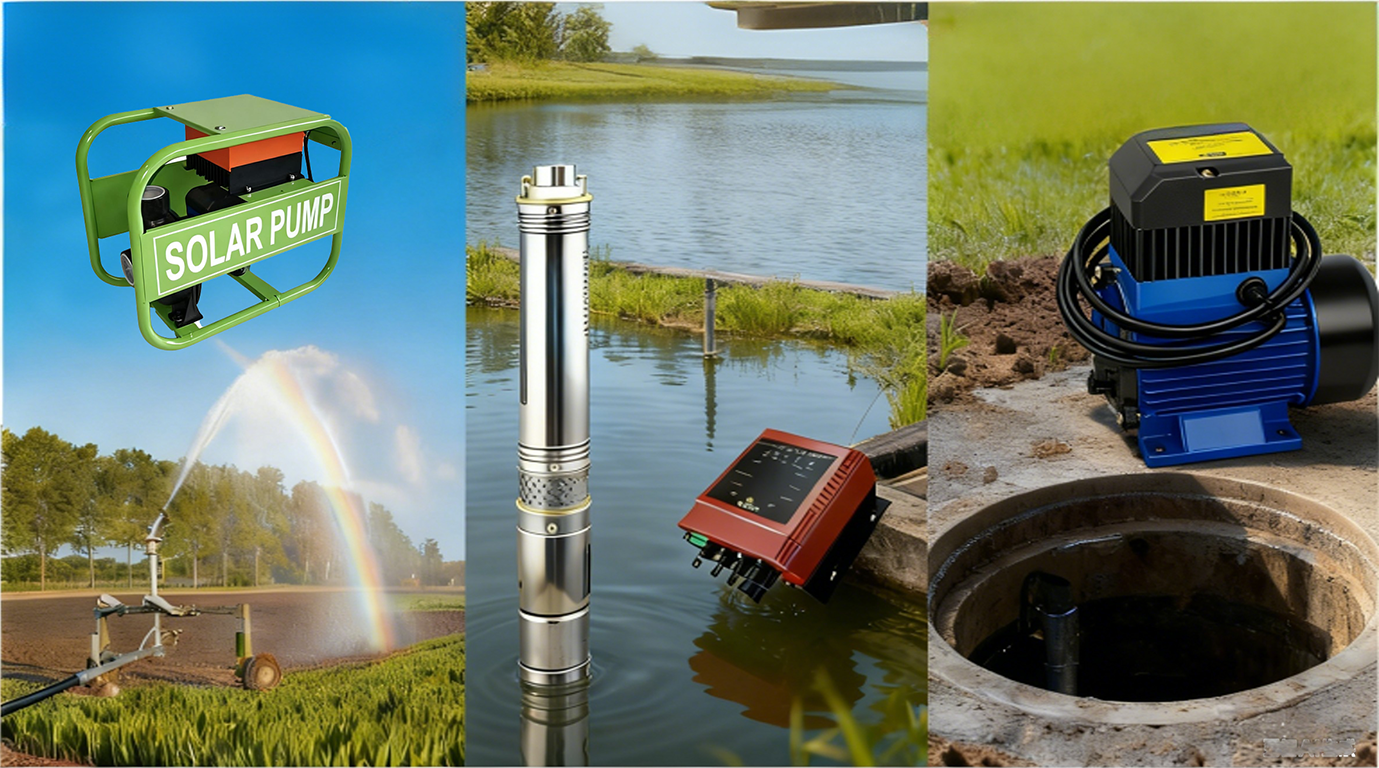Before You Choose
Solar water pumps are becoming an increasingly popular solution for modern water management. From agricultural irrigation and livestock watering to household and industrial use, these systems provide a reliable and sustainable way to access water in remote or off-grid areas. Flowatt stands at the forefront of this innovation, offering energy-saving, eco-friendly, and reliable solar water pumping solutions for diverse applications worldwide.
Key Factors in Choosing a Solar Water Pump
Factor 1: Water Source Conditions
- Type of Water Source: Determine if it's a deep well, shallow well, river, lake, or reservoir.
- Static & Dynamic Water Level: Measure the vertical distance from the ground to the water surface (static level) and the stabilized level during pumping (dynamic level).
- Water Quality: Assess whether the water is clear or contains sand, debris, or other corrosive elements.
Factor 2: Hydraulic Requirements
- Total Dynamic Head (TDH): Sum of Vertical Lift and Friction Loss. Pump max head must exceed TDH.
- Daily Water Demand: Total volume of water needed per day.
- Required Flow Rate: Calculate flow rate based on demand and sunlight hours.
Factor 3: Power & Solar Configuration
- Pump Operating Voltage: Ensure solar array voltage fits controller range.
- Pump Rated Power: Total panel power should slightly exceed pump rating.
- Local Solar Resource: Consider average daily peak sun hours.
Factor 4: Product Performance & Technology
- Pump Type: Submersible for deep wells, Surface for open water sources.
- Motor & Controller: Permanent Magnet Synchronous Motors with MPPT and FOC control.
- Protection Features: Dry-run, over-voltage, over-current, and short-circuit protection.
Factor 5: Quality & Reliability
- Core Materials: Corrosion-resistant materials like Stainless Steel.
- Enclosure Rating: IP65 or higher for outdoor use.
- Warranty & Service: Check warranty and local support availability.
Main Types of Solar Water Pumps
1. Centrifugal Pumps: Use rotating impellers to move water efficiently. Ideal for irrigation and water transfer in low-head areas.
2. Surface Pumps: Installed above ground, lift water from shallow sources. Easy to install and maintain, suitable for garden irrigation, livestock, or household use.
3. Submersible Pumps: Placed underwater, designed for deep wells. Quiet, cool, energy-efficient, and suitable for continuous operation.
How to Match Solar Panels with Pumps
- Know Your Pump Specs: Check voltage, power, flow rate, and total head to determine needed solar power.
- Match Voltage and Power: Panel voltage should match or slightly exceed pump voltage. Connect series to increase voltage or parallel to increase current. Add 20–30% extra capacity.
- Consider Sunlight and Controllers: Estimate daily sun hours, adjust panel wattage, and use a compatible controller or MPPT for smooth operation.
Why Choose Flowatt?
Flowatt delivers reliable, energy-efficient, and eco-friendly solar water pumps. Perfect for irrigation, agriculture, and off-grid water management, their pumps ensure high performance, low maintenance, and sustainable operation—helping you save energy while protecting the environment.
Buy Flowatt Pumps Now




